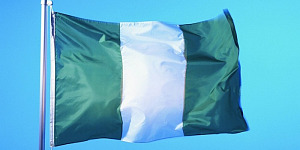Nigeria will start circulating newly redesigned currencies starting December 15, 2022 as President Muhammadu Buhari says there is no going back on the policy.
The Central Bank of Nigeria (CBN) has announced its planned redesign of N200, N500 and N1,000 notes with the current notes in circulation ceasing to be legal tender by the end of January 2023.
The bank described that plan as a move to counter terrorism financing, hoarding of banknotes and the increasing ease and risk of counterfeiting.
The change of the banknotes, which comes as the nation prepares for the general election in February 2023, according to political pundits, is intended to push politicians to release huge amounts of money they could be holding into circulation.
Although the policy is not going down well with some Nigerians, President Buhari, whose tenure ends on May 29, 2023, said there was no going back on the policy which was announced on October 26, 2022.
No going back on plan
President Buhari told Nigerian Television Authority (NTA) after a meeting with King Charles III at the Buckingham Palace on Thursday that the government would not abandon the plan.
He also said politicians would not be allowed to intimidate voters with money in the 2023 general elections.
“No going back. My aim is to make sure that Nigerians believe that we respect them as an administration.
"So, Nigerians should vote for whoever they like from whichever political party. Nobody will be allowed to mobilise resources and thugs to intimidate people in any constituency. That is what I want to go down in Nigerian history for as a leader.”
Defending the move, CBN Governor Godwin Emefiele said, “In recent times, currency management has faced several daunting challenges that have continued to grow in scale and sophistication with attendant and unintended consequences for the integrity of both the CBN and the country.”
The governor reported that there had been significant hoarding of banknotes with statistics showing that over 85 per cent of monies in circulation were outside the vaults of commercial banks.
“N2.73 trillion ($4.9 billion) out of the N3.23 trillion ($5.7 billion) in circulation exists outside the vault of the commercial banks. Evidently, currency in circulation has more than doubled since 2015, rising from N1.46 trillion ($2.6 billion) in December 2015 to N3.23 trillion ($5.7 billion) as at September 2022,” he added.
Reduce terrorism, kidnappings
He explained that the CBN was convinced that the incidents of terrorism and kidnapping would reduce as access to large volumes of money outside the banking sector, which is used as a source of funds for ransom payment, will begin to dry up.
Mr Emefiele added that the policy would solve the problems of the worsening shortage of clean banknotes as well as the increasing ease and risk of counterfeiting.
“Indeed, recent developments in photographic technology and advancements in printing devices have made counterfeiting relatively easier.
"In recent years, the CBN has recorded significantly higher rates of counterfeiting, especially at the higher denominations of N500 and N1, 000 banknotes,” he said.
Bank charges suspended
He said that in line with the transition from old notes to new ones, bank charges for cash deposits have been suspended with immediate effect.
New and existing naira notes will remain legal tender and circulate together until January 31, 2023 when the existing currencies will stop being legal tender.
"All banks currently holding the existing denominations of the currency were expected to begin returning these notes to the CBN effective immediately, as the newly designed currency will be released to the banks on a first-come-first-served basis,’’ the governor said.
He said that bank customers were expected to begin paying into their bank accounts the existing currency to enable them to withdraw the new banknotes once circulation begins in mid-December 2022.
Some Nigerians have argued that the policy would have a positive impact on the economy while others said it would herald hardships.
Association of Capital Markets Academics of Nigeria (ACMAN) President Uche Uwaleke said the policy will be positive for the economy in the medium to long term.
“Although the measure does not amount to demonetisation of big currency notes often carried out by central banks to curb black money and corruption, it will go a long way in ensuring that a lot of naira notes circulating outside the banks are crowded in.
“If it leads to large deposits in banks, it means the banks will have more money to lend which may reduce interest rates. I also think it may have the effect of reducing speculative attacks on the naira in the parallel market,” he said.
Disclose cost
Mr Mathew Ogagavworia, a forensic expert, said it is a good policy to redesign the naira but wanted the CBN to disclose the cost of the redesign and reprinting.
“In my view, most of the corruption money is held in US dollars. What we are likely to see is that more of those holding these illicit funds will change them to US dollars and allow the Bureaux de Change (CDCs) to move the naira to the banks since charges have now been lifted.
“The immediate implication is that it will drive up the black market rate of the dollar,” he said.
Meanwhile, the Economic and Financial Crimes Commission (EFCC) described the central bank’s policy as “a well-considered and timely response” to the challenges of currency management.
“The EFCC, the CBN and some other regulators in the financial sector have worked closely in the recent past to determine how best to stabilise the country’s monetary policy environment.” the Chairman of EFCC, Mr Abdulrasheed Bawa, said.
“It is heart-warming that the CBN has demonstrated courage in taking this bold decision, which I believe will bring sanity to the currency management situation in Nigeria,” Mr Bawa said.
Protests
But the leadership of Concern Northern Forum (CNF), an NGO, expressed concerns that redesigning the currency will cost the country huge sums of money at the expense of taxpayers and will add no value to the current multiple economic challenges the nation is facing.
“We will lead a massive protest across the northern states and the Federal Capital Territory (FCT) if the CBN governor is not sacked if the process of redesigning the naira is not suspended and the prosecution of those behind the decision,” the spokesperson for the group, Mr Abdulsalam Kazeem, said.
"This is coming at a period when we are borrowing to fund significant parts of our annual budget and another significant part of the borrowing goes to debt servicing and yet the only solution the apex bank can offer is to redesign our currency.”







































